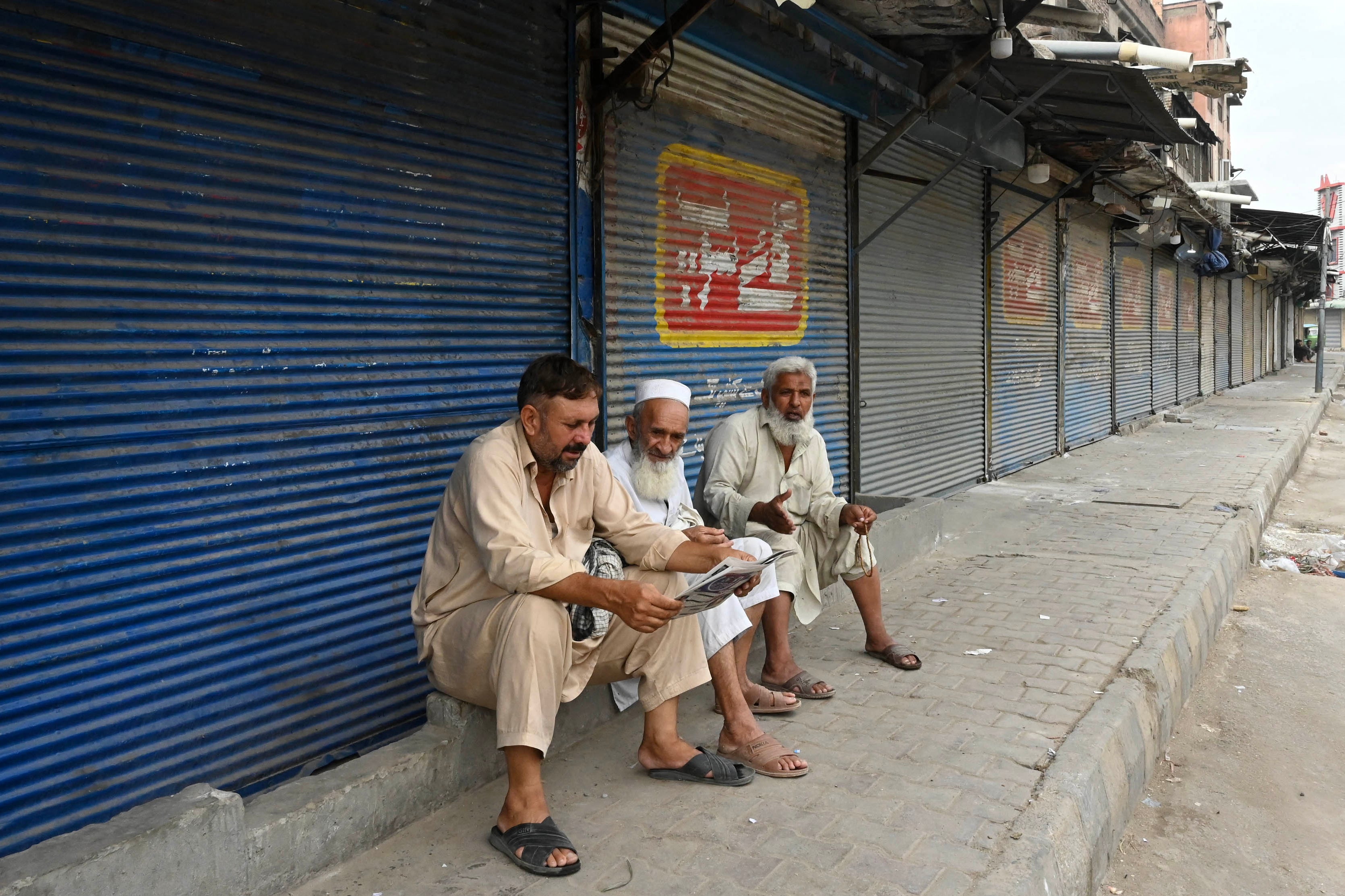Pakistan strike: Why traders have called for a nationwide shutdown today
Traders in Pakistan are holding a nationwide strike on 28 August, shutting down businesses to protest rising electricity costs and new taxes

Traders in Pakistan went on strike Wednesday, shutting down their businesses in all major cities and urban areas to protest a rise in electricity costs and new taxes imposed on shop owners.
The government of Prime Minister Shehbaz Sharif has steadily raised electricity prices since Pakistan last month struck a deal with the International Monetary Fund for a new $7 billion loan. The higher cost of living and price hikes have triggered widespread discontent and drawn protests.
Most of the public markets across Pakistan were closed on Wednesday, though pharmacies and grocery stores selling basic food items remained open. Kashif Chaudhry, a strike leader, said those were not closed so as not to inconvenience the general public.


Stores were shuttered in the Pakistani capital of Islamabad, the nearby garrison city of Rawalpindi, as well as in the city of Lahore, the country's culture capital, and the main economic hub of Karachi.
The strike was called by Naeem-ur-Rehman who heads the religious Jamaat-e-Islami Pakistan party and endorsed by most of the various traders’ unions and associations.
However, traders in the northwestern Khyber Pakhtunkhwa and the southwestern Balochistan provinces observed a partial strike, keeping some stores open while closing others.


The strike is aimed at forcing the government to reverse the recent hikes in power bills and the controversial tax that followed the recent talks with the IMF, which wants to see Pakistan broaden its tax base.
The July deal was Pakistan's latest turn to the global lender for help in propping up its economy and dealing with its debts through big bailouts. Earlier this year, the IMF approved the immediate release of the final $1.1 billion tranche of a $3 billion bailout to Pakistan.
Subscribe to Independent Premium to bookmark this article
Want to bookmark your favourite articles and stories to read or reference later? Start your Independent Premium subscription today.
